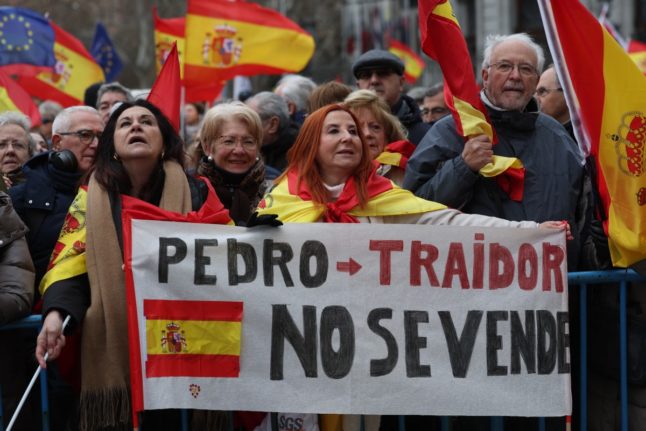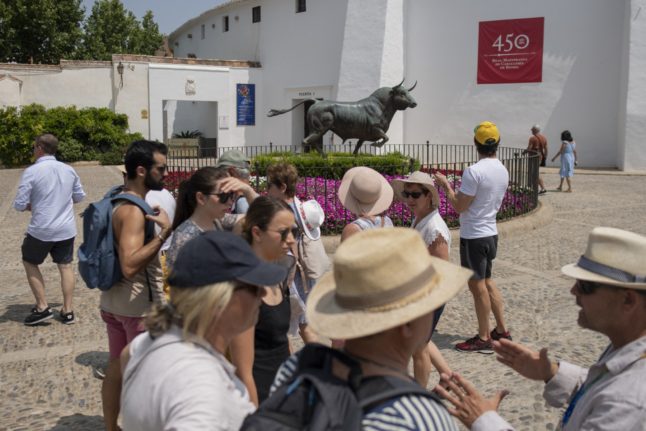Sanchez pledged last year to pass an amnesty exonerating people prosecuted for their role in Catalonia’s failed 2017 independence bid — in exchange for crucial parliamentary support from hardline Catalan separatist party JxCat.
Around 15,000 flocked to Cibeles Square in the historic centre of Madrid, waving Spanish flags and chanting “Sanchez resign”.
Some carried a large banner depicting Sanchez with a Hitler moustache that said in English: “Spain is no longer a democracy. It’s beginning to be a dictatorship. SOS Europe.”
Civil groups called the protest, which was attended by right-wing and far-right parties, when the draft amnesty law was approved on Thursday by the parliament’s justice committee.
MPs are expected to vote on it on March 14.
Sanchez’s Socialists failed to secure a majority in the inconclusive general election in July and his fragile left-wing minority government needs support from other parties to pass legislation.
MPs rejected a first amnesty bill in January, with JxCat MPs saying it did not protect all the relevant people, starting with exiled ex-Catalan leader Carles Puigdemont.
The Socialists and the Catalan parties advocating independence for the wealthy northeastern region agreed on Wednesday on a strengthened bill that they said complied with “the constitution, the law and European
jurisprudence”.
But the right and far right say it is unconstitutional.
Ester Munoz, an MP for the main right-wing opposition Popular Party, accused the government of engaging in a “corrupt deal” to swap “impunity” for separatists in return for votes in parliament.
The far-right Vox party, the third largest group in parliament, branded the government as “evil”.
However, Sanchez defended the bill during a party meeting in the northwestern city of Bilbao and insisted it would “strengthen” democracy.
Sanchez said the bill would smooth “the path of reconciliation” in Catalonia.
Protester Ana Garcia, a 50-year-old lawyer who declined to say which political party she supported, said the amnesty law “made some Spaniards more equal than others”.
“Our democracy is in trouble (because) Sanchez has no limits,” she told AFP.
Meanwhile, Sanchez announced that he would push Congress to recognise a Palestinian state before the end of his mandate in 2027.
“We will do it because of moral conviction, because it’s a just cause, but also because it is the only way that two states — Israel and Palestine — can live together and coexist in peace and security,” said Sanchez.



 Please whitelist us to continue reading.
Please whitelist us to continue reading.
Member comments